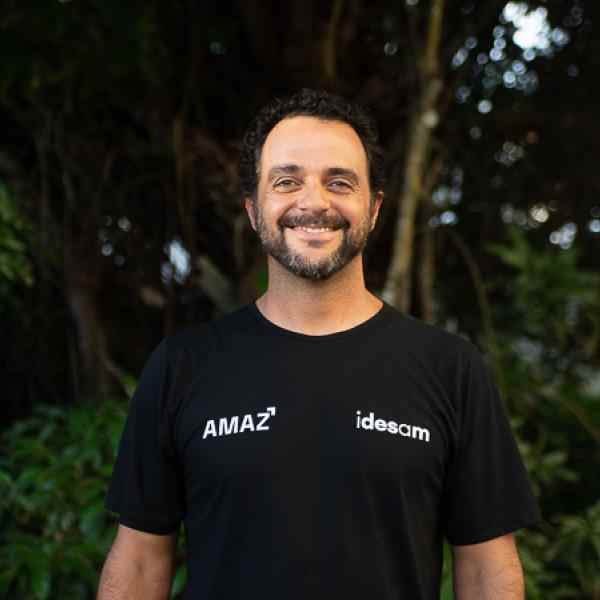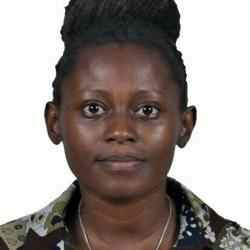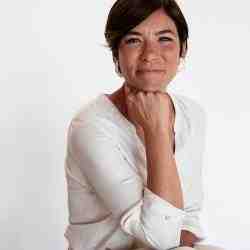Mariano is an articulator of networks and social entrepreneurs and has been fundamental to the ecosystem of renewable and sustainable bioeconomy development in the Amazon. His work has created the necessary foundations for the emergence of a new economy in Brazil, encompassing improvements in legal protections for the Amazon biome, investments in cutting-edge scientific research, and sustainable businesses. Mariano's experiences in structuring IDESAM led him to understand the challenges of being an entrepreneur in the Amazon, allowing him to design interconnected programs that support innovators with concrete ideas for improving people's living conditions while preserving the forest.
Founded in 2004, IDESAM has been working throughout the Amazon, focusing on four strategic pillars: a) adding value to the products of Amazonian socio-biodiversity; b) attracting and managing financial resources dedicated to promoting sustainable value chains; c) developing a network of partners; and d) managing and transferring knowledge. Through these strategies, Mariano is achieving three fundamental axes for systemic change, which he didactically describes as a progressive education structure, covering the various phases necessary for the development of the new Amazon bioeconomy.
Firstly, he is creating a sustainable production base through technical and management advice to social organizations, together with public policies, and connecting partners along the value chains. This is the way IDESAM prepares entrepreneurs, rural producers and extractivists to develop sustainable production activities that obtain greater financial returns and make their products more valued by the consumer market. The long-term work carried out by IDESAM in the heart of the forest was the seed for the creation of AMAZ, other accelerators and incubators, and has been fundamental in attracting public and private investment to the socio-bioeconomy in the Amazon. IDESAM's work in its different programs is structured like a high school in the school of entrepreneurship, offering support for structuring value chains in forest conservation and restoration, and sustainable production.
IDESAM is working on 37 sustainable value chains in the Amazon, ranging from local partnerships for consumer goods production to community-based tourism construction. Two important examples of value chains that complement each other are carbon credits and agroforestry coffee production. IDESAM was a pioneer in breaking the exclusivity of large companies in the carbon market, supporting local, traditional, and indigenous communities and smallholders to benefit from carbon credits. This pioneering work has been transformed into what they call Environmental Services and the Carbon Neutral Program (PCN), in which partnerships are developed with individuals and companies to neutralize carbon footprints by investing in Agroforestry Systems and training the communities that manage them.
The second example is Café Apuí, the first shade-grown coffee produced in the Amazon rainforest. This project sums up IDESAM's ability to develop and maintain sustainable value chains in the Amazon. It is one of the seed experiences for the creation of AMAZ. Responsible for 92 hectares of reforested areas, the coffee plants are grown in association with other native species, such as andiroba, ipê and jatobá. Café Apuí's agricultural model has increased the value of the coffee beans and allowed credits to be issued for avoided deforestation. In addition to increasing productivity by 66% per hectare, and consequently increasing the producer's income by 300% per productive hectare, the farmers plant without pesticides, proving that this is a healthier, more sustainable, and profitable agricultural model.
Secondly, IDESAM focuses on developing technological solutions for a sustainable bioeconomy, so that they are commercially viable and act on the bottlenecks that prevent sustainable products from being accepted or being absorbed by large-scale industries. Considered by Mariano to be IDESAM's specialization program, PPBio (Priority Bioeconomy Program), focuses on research, technological development, and innovation of new products.
The best example to illustrate this objective is the work with the Manaus Free Trade Zone to develop PPBio. In partnership with SUFRAMA (Superintendence of the Manaus Free Trade Zone), IDESAM is coordinating PPBio, a public policy that connects the Manaus Industrial Hub (MIH) and forest biodiversity, capturing companies' mandatory Research and Development (R&D) resources and transforming them into new businesses and bioeconomy technologies in the Western Amazon and Amapá states. In the last four years, this project has obtained more than R$128 million to invest in 15 different value chains spread across five states in the northern region. In this way, PPBio transforms the knowledge of these companies into solutions for internal forest problems and adds value to the current Amazon bioeconomy. Among the projects are biofertilizers made from açaí biochar; FishTrader, a market information intelligence platform for maximizing profits for fish farmers and the fish industry; biodegradable cassava starch packaging, incorporating agro-extractive waste; and the development of eco-sustainable bike parts from Amazonian fibre waste and polymer waste.
Finally, the creation of AMAZ came with the aim of promoting the development and acceleration of sustainable businesses to strengthen those that are unlocking the production and creation of hundreds of products and services in the Amazon. For Mariano, this would be the equivalent of higher education for IDESAM, in which, finally after "graduating", the businesses enter AMAZ to begin a cycle of development and accelerated growth, attracting new partners and investors.
AMAZ was founded in 2021 to leverage IDESAM's impact by synthesizing and sharing the experiences and knowledge accumulated by the organization over the years. Instead of developing sustainable value chains on its own, AMAZ seeks out innovative initiatives and social entrepreneurs that align with the aim of creating a new Amazon bioeconomy. It then offers the experience IDESAM has accumulated over the years to accelerate these businesses' entry into the market. In doing so, AMAZ consequently increases the positive impact of these companies, weaving a network of networks and strengthening key players in an Amazon bioeconomy. Starting with an open call aimed at networking green companies, the pipeline is reduced to around 20 initiatives to be pre-accelerated. Those successful are selected to take part in the acceleration and mentoring program. The journey of the selected companies is divided into three stages: modeling, acceleration, and leverage.
In the modeling phase, the finalists study and plan their potential for growth and impact. In the acceleration phase, they receive a seed capital investment of up to R$800,000 and take part in a complete 6-month acceleration program specializing in Amazonian businesses, covering the main gaps for doing business in the region. This includes workshops, mentoring and individual support in legal advice, accounting models, management, marketing, among others.
AMAZ establishes partnerships with a group of organizations that have in-depth knowledge of the needs of the region and/or entrepreneurs. Some examples are Conexsus (founded by Ashoka Fellow Valmir Ortega); Sitawi, an organization focused on hybrid financing to leverage the philanthropic capital of social enterprises; and SenseLab, a B Corporation that catalyzes the development of people, organizations and ecosystems through management plan consulting, leadership training and network development. At AMAZ, they facilitate the complex processes of collecting and creating the necessary documentation, providing methodological support for the initiatives selected for the last portfolio. Finally, the leverage phase takes 3 to 4 years of support for companies' strategic and investment needs. It includes organizing new investment rounds with investors and partner funds; holding events and meetings to articulate, mobilize and connect the network of entrepreneurs, companies and partners; and producing and disseminating technical, analytical and public communication content.
The process is extensive, strategic and customized to the challenges of the Amazon. The entrepreneurs who have benefited from AMAZ indicate that the process has contributed to their development and growth in the sector. They highlight the connections made with new investors and partners; the launch of their products; or even the increase in their market presence because of the journey with AMAZ.
To finance this acceleration program, Mariano has built a financially sustainable model that relies on two main sources of funding: philanthropic funds and private investors. The philanthropic funders (Fundo Vale, Instituto Clima e Sociedade, Fundação Good Energies, Fundo JBS pela Amazônia, and Instituto Humanize), who are co-founders of AMAZ, sit on the organization's board. This governance structure emphasizes a collaborative approach, with regular information sharing through newsletters, reports, and quarterly meetings, fostering deep connections between funders and AMAZ's portfolio.
In addition, ecosystem activations and annual meetings with this group contribute to this engagement. Private investors, for their part, commit to AMAZ's ethos of accelerating businesses with proven high socio-environmental impact in the Amazon, associated with value chains that reforest or conserve biodiversity. The financial terms involve a return on the funds invested over ten years (extendable for a further two), plus the appreciation of the portfolio. An administration fee of 5% and a success rate of 20% of the portfolio's appreciation is retained and reinvested in new funds. This mechanism promotes a continuous cycle of financial sustainability, preventing AMAZ from requesting more philanthropic investments in a short period of time. It also overcomes the bureaucracy associated with philanthropic funds, providing companies with working capital to leverage the product.
This hybrid financing model, known as blended finance, is generating great expectations. The most optimistic forecast is that it will grow around seven to eight times, which means a possible return of up to 10 million reais for AMAZ to be reinvested in other impact businesses. In terms of impact, AMAZ has achieved 3.6 million hectares of direct or indirect forest conservation – the equivalent of more than half of the largest government-run conservation complex in the Amazon, which totals 6 million hectares – spread across 45 municipalities in 6 states in the northern region. Finally, the families will earn R$1.45 million in income from the sale of products by 2022.
Over a 10-year horizon, Mariano foresees the emergence of new locally developed businesses in the Amazon and plans to create an innovation center to attract entrepreneurs and investors on a national and international level. To this end, he is building partnerships with the Instituto Clima e Sociedade (iCS), Fundo Vale, Good Energies, FutureBrands, Mercado Livre, among others. Mariano and IDESAM's goal is to invest at least R$100 million in the Amazon bioeconomy over the next few years. With this, the intention is to have at least 100 market agents (client companies, partners, etc.), 90 sustainable value chains created, supported or developed and 226 businesses, social organizations and/or solutions being supported. Mariano is changing the understanding of what can be done with impact businesses in the Amazon Basin and is thus attracting much more investment towards the vision of a new sustainable bioeconomy for the region.
Read less


